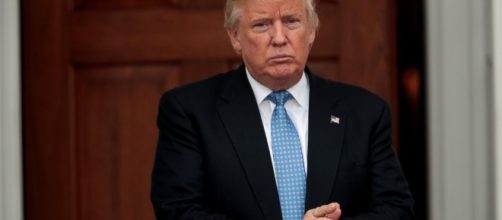The US military today began to investigate the failed raid by special forces against a suspected Al-Qaida compound in Yemen. Initial reports had suggested that one American soldier had been killed in action, alongside an 8-year-old girl believed to be an American citizen. However, following detailed investigations of the plan and it impacts on the ground, it is now estimated that up to 30 individuals were killed, with up to 10 being women and children.
According to CNN, an internal review team at Central Command 'concluded regrettably that civilian non-combatants were likely killed in the midst of a firefight' and added that some of the casualties may, in fact, have been children.
Acted in haste
Whilst some reports stated that many of the combatants were themselves women, it is an embarrassing outcome for the new President during his first week in office. It is believed that the mission itself was approved over dinner just five days after President Trump's inauguration, with son-in-law Jared Kushner, special advisor Stephen Bannon and defence secretary General Jim Mattis alongside him to offer their advice. A diplomatic source told CNN that the mission itself had been approved 'fairly quickly'. Furthermore, additional military sources were quoted by both Reuters and the New York Time as placing the blame squarely at Trump and his inner circle. For an acting President and his staff to be criticised in such a way by serving military personel is damning for Trump, particularly since the investigation continues to gather pace.
The initial plans for the raid had been made available to
A diplomatic source told CNN that the mission itself had been approved 'fairly quickly'. Furthermore, additional military sources were quoted by both Reuters and the New York Time as placing the blame squarely at Trump and his inner circle. For an acting President and his staff to be criticized in such a way by serving military personnel is damning for Trump, particularly since the investigation continues to gather pace. The initial plans for the raid had been made available to President Obama but had been delayed due to his belief that the intelligence was insufficiently reliable and that surveillance on the ground had been 'minimal, at best'.
With reports of the special forces team having received incomplete intelligence, it resulted in the SEAL team being dropped directly onto an Al-Qaida compound heavily fortified by land mines, snipers and a greater than expected numbers of militants. On top of this, an Osprey MV-22 aircraft (one of four aircraft involved in the operation) was suspected to have been damaged by the militants, resulting in three service members being injured, alongside the death of Chief Petty Officer William Owens, shot and killed during the raid itself. The downed aircraft was subsequently destroyed by missiles to avoid any technology surviving falling into the hands of the militants.
Future implications
With the raid criticised both in the US and by Yemeni officials, it remains to be seen what impact such action will have across the Middle East.
Already unpopular for his controversial immigration ban and seen as being anti-Muslim by many, Donald Trump may have further played into the hands of Islamist extremists in the propaganda war. American sources confirmed that, despite the casualties during the raid itself, valuable information had been retrieved that would be vital in the battle against terrorism, both in the US and around the world. However, the International Crisis Group, based in Brussels, released a statement on Wednesday announcing that the raid was a perfect example of ' what not to do'. Furthermore they believed that the US military's actions, alongside the reported number of civilian deaths, would 'breed anti-American resentment across the Yemeni political spectrum that works to the advantage of Al-Qaida in the Arabian Peninsula'.

